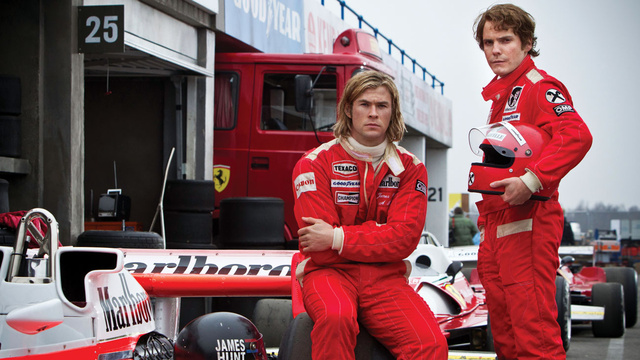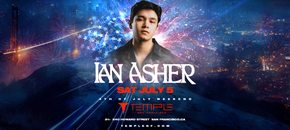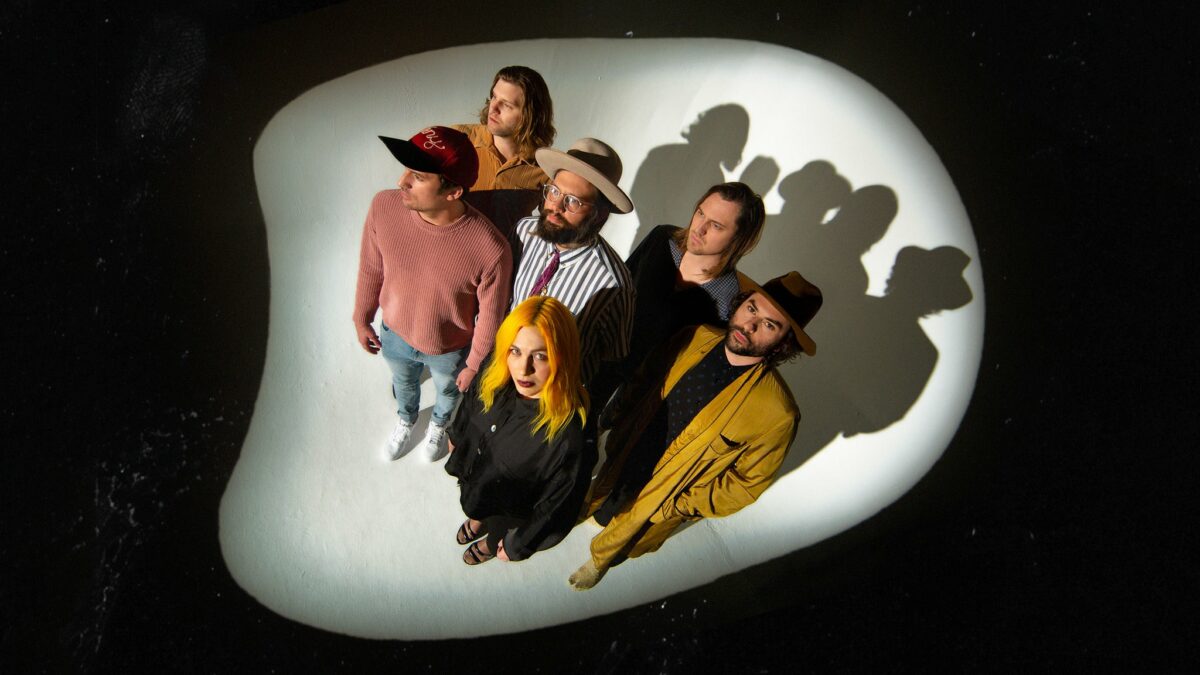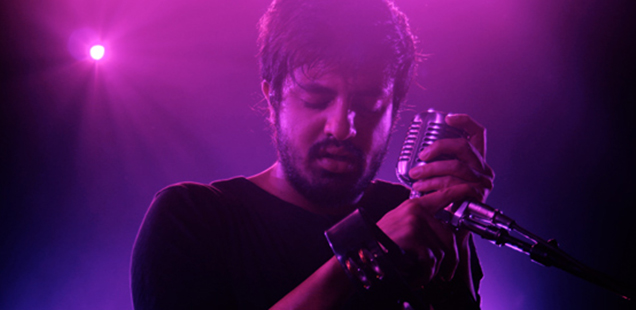Movie Review: ‘Rush’ Is Big and Flashy But Lacks Depth

Rush is Ron Howard’s most exciting film since 1995’s Apollo 13 and it appears he’s back to form after a pair of flops — Angels & Demons and The Dilemma. It’s a popcorn film in the truest sense, a sports drama that recalls it’s time period — the 1970’s. While it’s adrenaline rushed tale of the 1976 Formula One rivalry between the British James Hunt (Chris Hemsworth) and the Austrian Niki Lauda (Daniel Brühl), it leaves nothing behind to chew on. That doesn’t mean it isn’t a fun ride — because it definitely is — but it’s all surface without much depth into what really drove Hunt and Lauda.
James Hunt lives life on the edge. He indulges in drugs, alcohol, and, most importantly, women. He welcomely accepts the spotlight as a driver, but he also wants to prove that he’s the best and worth the adulation. Lauda, on the other hand, is the polar opposite and is solely focused on winning, willing to sacrifice everything else — friendships, likeability — to prove his own worth. Set mostly against the 1976 Formula One season, it establishes the groundwork for both of their entries into the racing world but the focus is the one season that saw them competing directly for the world champion title.
What director Ron Howard does well is to never let the pace slack. Working off a script by Peter Morgan (The Queen), he’s able to keep the ball rolling and keep the story interesting. But, it’s at the expense of smaller moments that would help create depth for Hunt and Lauda, in addition to it’s numerous supporting characters. Hunt’s short lived marriage to model Suzy Miller (Olivia Wilde) is supposed to establish his grasp at gaining normalcy in his life — something Miller states point blank — but when it falls apart it’s hard to know how that affects him and the story. Is he heartbroken? Does that, in turn, fuel his drive to win? It’s unclear. Of course it’s based on real people and real events but it’s a narrative film after all, not a documentary. Morgan and Howard do take liberties with the story to maximize it’s cinematic impact but it also seems as if they’re always skimming the surface.
Instead it’s Lauda who becomes the more interesting character as he isolates himself from those around him, unlike Hunt who is always the life of the party. His major relationship with future wife Marlene Knaus (Alexandra Maria Lara) immediately impacts his perspective on his life and his career, as he’s no longer the lone wolf. While it was Lauda who was the one willing to sacrifice it all for glory, the tides turn after his marriage and it’s Hunt who has nothing to lose but himself.
It’s not a complete fluff piece. Howard and Morgan are able to inject enough palpable drama to sustain the film, and Hemsworth and Brühl are able to create full enough characters to carry the film but it’s lacking a coherent center to rest all of it on. Still, it’s to Howard’s testament that he’s mostly able to reign the story in and create the excitement he was certainly looking for. It’s just too bad he couldn’t create something that could dig further into who these drivers really were and what motivated them.
Rating: 3.5 out of 5






